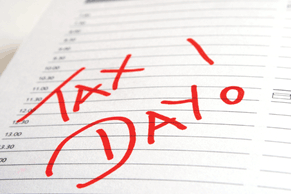More help with self-assessment tax bills
If you haven’t paid what you owe within 30 days of the filing date of your self-assessment return for that year, you’ll be charged a penalty. The good news is that HMRC has relaxed this rule for the 2019/20 tax year. What’s the full story?
-
Electronic VAT return
-
Government announces significant climbdown on IHT reforms
The introduction of a £1 million cap on 100% business and agricultural property relief from April 2026 has been criticised particularly heavily by the farming industry. The government has announced a significant watering down of the measure. What’s happening?
-
Corporation tax due

HMRC has today (19 February) announced that self-assessment taxpayers won’t be charged the automatic 5% late payment penalty if they pay what they owe for 2019/20 or set up a payment plan by 1 April 2021.
Normally, a 5% late payment penalty is charged on any unpaid tax that is still outstanding on 3 March following the end of the tax year. But this year, because of the impact of the pandemic, HMRC is giving taxpayers more time to pay or set up a payment plan.
Note that HMRC will stick to the normal rule of charging interest at 2.6% per annum for all self-assessment bills not paid on time.
You can pay your tax bill or set up a monthly payment plan here. You need to do this by midnight on 1 April to prevent being charged a late payment penalty.





 This website uses both its own and third-party cookies to analyze our services and navigation on our website in order to improve its contents (analytical purposes: measure visits and sources of web traffic). The legal basis is the consent of the user, except in the case of basic cookies, which are essential to navigate this website.
This website uses both its own and third-party cookies to analyze our services and navigation on our website in order to improve its contents (analytical purposes: measure visits and sources of web traffic). The legal basis is the consent of the user, except in the case of basic cookies, which are essential to navigate this website.